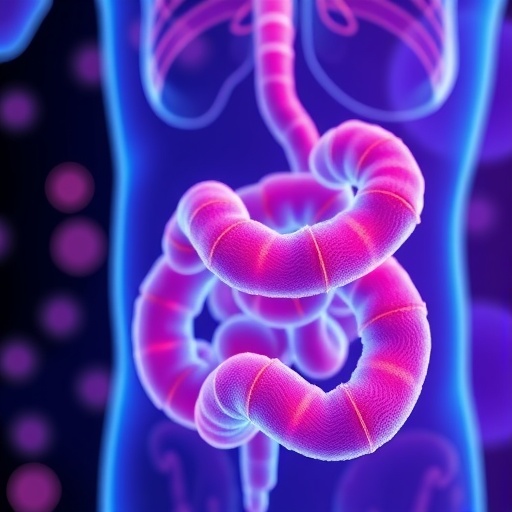In a groundbreaking advancement in cancer immunotherapy, scientists at University College London (UCL) have successfully engineered a rare subset of immune cells, known as γδT cells, to target and eradicate slow-growing bowel cancer cells — a category of tumors notoriously resistant to conventional chemotherapy. With bowel cancer claiming over 900,000 lives annually worldwide, this innovative approach could redefine therapeutic paradigms and open new avenues for treating recalcitrant solid tumors.
Bowel cancer poses a significant clinical challenge due to its heterogeneous growth rates. Traditional chemotherapeutic regimens primarily assault rapidly dividing cancer cells, leaving behind quiescent or slow-cycling populations that evade destruction and later give rise to relapse. These residual cells are often more aggressive and less responsive to subsequent treatments, underscoring an urgent need for therapies capable of overcoming this resilience.
Leveraging the advancements made in adoptive cell therapy, which has revolutionized treatment for hematological malignancies such as leukemia, the UCL researchers turned their attention to a far less abundant, yet intriguing, population of immune cells termed γδT cells. Unlike their more common αβT cell counterparts that identify threats through antigen presentation via MHC molecules, γδT cells possess innate-like abilities to detect cellular stress markers without reliance on classical antigen presentation, enabling a rapid and versatile immune response.
Previous UCL investigations demonstrated the feasibility of engineering γδT cells to target osteosarcoma cells effectively. However, extending this success beyond the bone microenvironment and into the complex milieu of solid tumors remained uncharted territory. To explore this, scientists isolated γδT cells from healthy donors and employed lentiviral vectors to transduce these cells with a gene encoding a stabilized interleukin-15 (stIL-15). This cytokine variant is known to enhance T cell survival and proliferation, thereby equipping the γδT cells with prolonged viability and sustained cytotoxic potential.
To amplify their anti-tumor efficacy, a subset of these engineered γδT cells was further modified to express an antibody against B7-H3, an immune checkpoint protein commonly overexpressed on bowel cancer cells. This modification not only facilitated targeted recognition but also activated dual cytolytic mechanisms: Antibody-Independent Cytotoxicity (AIC), the intrinsic killing pathway of γδT cells, and Antibody-Dependent Cellular Cytotoxicity (ADCC), a potent immune-mediated attack triggered through the antibody engagement.
The functional capacity of these modified immune cells was rigorously evaluated using patient-derived tumor organoids—three-dimensional cellular culture systems that authentically replicate the tumor microenvironment’s complexity and heterogeneity. Across over 1,000 experimental conditions encompassing organoids from ten bowel cancer patients, the supercharged γδT cells exhibited remarkable persistence and potency. Unlike unmodified γδT cells, which succumbed to tumor-mediated immunosuppression and cellular exhaustion, engineered cells maintained robust viability and cytotoxic function over extended periods.
Intriguingly, when the γδT cells relied solely on their native antibody-independent killing, tumor cells orchestrated adaptive resistance by altering immune signaling pathways—effectively “rewiring” the γδT cells into a diminished state. This discovery highlights the adaptive plasticity of tumors and their capacity to undermine monotherapeutic immune attacks. Conversely, multi-modal attack strategies, empowered by the B7-H3 antibody’s facilitation of both AIC and ADCC, restored the functional wiring of γδT cells. This dual-pronged assault decisively eliminated cancer cells, including slow-dividing subsets impervious to chemotherapy.
These findings were contextualized by the co-corresponding authors, Professor Chris Tape and Dr. Jonathan Fisher, who emphasized the translational implications. Professor Tape articulated, “By providing γδT cells with multiple avenues to attack, we can circumvent the tumor’s defensive mechanisms and sustain an effective anti-cancer response. This advancement propels us closer to novel immunotherapies for refractory bowel cancer.” Dr. Fisher, the architect of the engineered γδT cell platform, highlighted the broader potential to extend these therapies across other solid tumors, a notoriously difficult arena for immunotherapies due to complex tumor-immune interactions.
A pivotal component of the research was deploying UCL’s ‘phenoscaping’ technology, a sophisticated single-cell analytical framework that offers unprecedented resolution in mapping cellular phenotypes and dynamic interactions within tumor-immune ecosystems. This tool elucidated the cellular trajectories and molecular adaptations driving the differential outcomes between engineered and unmodified γδT cell populations, informing rational design enhancements for future therapeutic iterations.
Central to the promise of γδT cell-based immunotherapy is their unique biological distinction from αβT cells, which dominate current T cell therapies but require autologous sourcing to minimize graft-versus-host disease and maximize efficacy. γδT cells possess the intrinsic capacity for allogeneic transfer, meaning therapeutically potent cells could be derived from healthy donors, thereby surmounting logistical and manufacturing obstacles that hamper widespread accessibility of personalized T cell therapies.
Collectively, the research underscores a critical paradigm shift: engineering immune cells not merely for specificity but for resilience and multi-modal functionality can empower sustained tumor eradication even in the face of dynamic tumor resistance mechanisms. As these promising preclinical outcomes pave the way for clinical translation, they ignite hope for more durable, effective, and universally accessible immunotherapies against bowel cancer and potentially other recalcitrant solid malignancies. The study was generously supported by renowned organizations including Cancer Research UK, the Medical Research Council, and the Wellcome Trust, underscoring the global commitment to advancing cancer treatment frontiers.
Subject of Research: Cells
Article Title: 10.1158/0008-5472.CAN-25-1890
News Publication Date: 14-Oct-2025
Web References: 10.1158/0008-5472.CAN-25-1890
References: Cancer Research (Journal)
Keywords: Cancer cells
Tags: adoptive cell therapy for solid tumorscancer immunotherapy advancementsclinical challenges in bowel cancerdrug-resistant bowel cancer treatmentenhancing immune response against tumorsimmune cell engineeringimmune system and cancerinnovative cancer treatment strategiesovercoming chemotherapy resistancetargeting slow-growing cancer cellstherapeutic paradigms in oncologyγδT cell therapy





